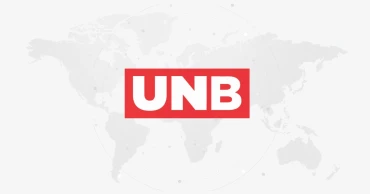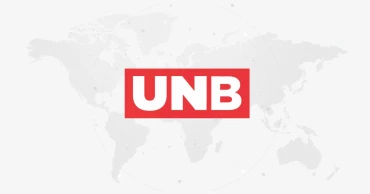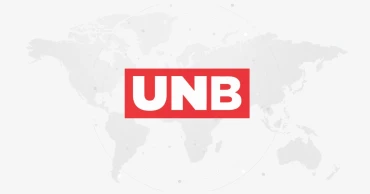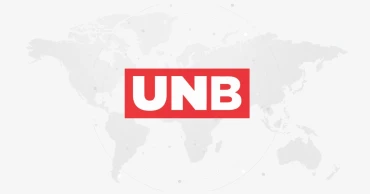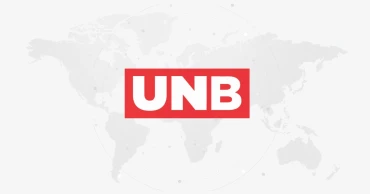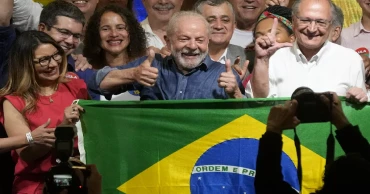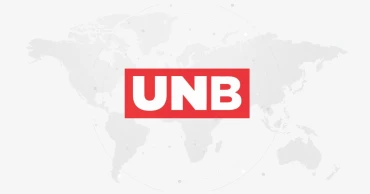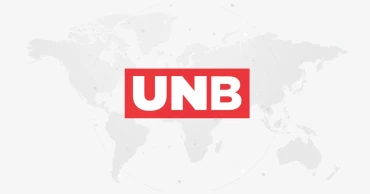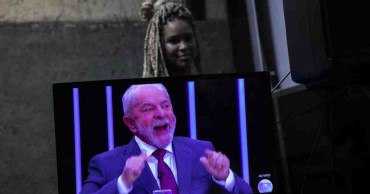Latin-America
33 killed in Colombia landslide
The death toll climbed to 33 from a landslide that buried vehicles along a highway in Colombia over the weekend, Colombian Interior Minister Alfonso Prada said Monday.
The landslide that happened on Sunday buried a bus carrying passengers from Cali, in the western Valle del Cauca department, to Condoto, in the western Choco department, along with a car and a motorcycle on the Pereira-Quibdo Highway in the western-central department of Risaralda.
"We have identified 33 deceased people, including three minors. We have rescued nine people alive, four of them are currently in critical condition," Prada said.
Read: Newborn among 7 dead in Italian island landslide
Personnel from Colombia's Risk Management Unit, and the Transit and Transportation Directorate of the Transportation Ministry, as well as the police department and the military, rushed to rescue, he said.
In the wake of the landslide, authorities plan to declare a nationwide maximum alert to prepare for weather-related disasters amid a cold wave that is expected to continue for several more months, said Prada.
Colombian President Gustavo Petro has ordered a National Unified Command Post to be installed in the capital Bogota by Tuesday at the latest to determine the state of the roadways under adverse weather conditions, he said.
Read: Landslides remain most substantial damaging, recurrent hazards in Cox’s Bazar: UNDP
Risaralda Governor Victor Manuel Tamayo told reporters the highway where the accident occurred is in poor condition, complicating efforts to find survivors and retrieve the bodies of the victims.
Brazilian protests intensify; Bolsonaro stays silent
The two men were sitting at a bar on Nov. 21, sipping drinks for relief from the scorching heat of Brazil’s Mato Grosso state, when police officers barged in and arrested them for allegedly torching trucks and an ambulance with Molotov cocktails.
One man attempted to flee and ditch his illegal firearm. Inside their pickup truck, officers found jugs of gasoline, knives, a pistol, slingshots and hundreds of stones — as well as 9,999 reais (nearly $1,900) in cash.
A federal judge ordered their preventive detention, noting that their apparent motive for the violence was “dissatisfaction with the result of the last presidential election and pursuit of its undemocratic reversal,” according to court documents reviewed by The Associated Press.
For more than three weeks, supporters of incumbent President Jair Bolsonaro who refuse to accept his narrow defeat in October’s election have blocked roads and camped outside military buildings in Mato Grosso, Brazil’s soy-producing powerhouse. They also have protested in other states across the nation, while pleading for intervention from the armed forces or marching orders from their commander in chief.
Since his election loss, Bolsonaro has only addressed the nation twice, to say that the protests are legitimate and encourage them to continue, as long as they don’t prevent people from coming and going.
Bolsonaro has not disavowed the recent emergence of violence, either. He has, however, challenged the election results — which the electoral authority’s president said appears aimed at stoking protests.
While most demonstrations are peaceful, tactics deployed by hardcore participants have begun concerning authorities. José Antônio Borges, chief state prosecutor in Mato Grosso, compared their actions to that of guerrilla fighters, militia groups and domestic terrorists.
Mato Grosso is one of the nation’s hotbeds for unrest. The chief targets, Borges says, are soy trucks from Grupo Maggi, owned by a tycoon who declared support for President-elect Luiz Inácio Lula da Silva. There are also indications that people and companies from the state may be fueling protests elsewhere.
Road blockades and acts of violence have been reported in the states of Rondonia, Para, Parana and Santa Catarina. In the latter, federal highway police said protesters blocking highways have employed “terrorist” methods including homemade bombs, fireworks, nails, stones and barricades made of burnt tires.
Read more: Security agencies will act, if vandalism is there in the name of protests, says Home Minister
Police also noted that roadblocks over the weekend were different from those carried out immediately after the Oct. 30 runoff election, when truckers blocked more than 1,000 roads and highways across the country, with only isolated incidents.
Now, most acts of resistance are taking place at night, carried out by “extremely violent and coordinated hooded men,” acting in different regions of the state at the same time, federal highway police said.
“The situation is getting very critical” in Mato Grosso state, chief state prosecutor Borges told the AP. Among other examples, he noted that protesters in Sinop, the state’s second most populous city, this week ordered shops and businesses to close in support of the movement. “Whoever doesn’t shut down suffers reprisals,” he said.
Since the vote, Bolsonaro has dropped out of public view and his daily agenda has been largely vacant, prompting speculation as to whether he is stewing or scheming.
Government transition duties have been led by his chief of staff, while Vice President Hamilton Mourão has stepped in to preside over official ceremonies. In an interview with newspaper O Globo, Mourão chalked up Bolsonaro’s absence to erysipelas, a skin infection on his legs that he said prevents the president from wearing pants.
But even Bolsonaro’s social media accounts have gone silent – aside from generic posts about his administration, apparently from his communications team. And the live social media broadcasts that, with rare exception, he conducted every Thursday night during his administration have ceased. The silence marks an abrupt about-face for the bombastic Brazilian leader whose legions of supporters hang on his every word.
Still, demonstrators, who have camped outside military barracks across Brazil for weeks, are certain they have his tacit support.
“We understand perfectly well why he doesn’t want to talk: They (the news media) distort his words,” said a 49-year-old woman who identified herself only as Joelma during a protest outside the monumental regional military command center in Rio de Janeiro. She declined to give her full name, claiming the protest had been infiltrated by informants.
Joelma and others say they are outraged with Bolsonaro’s loss and claim the election was rigged, echoing the incumbent president’s claims — made without evidence — that the electronic voting system is prone to fraud.
Scenes of large barbecues with free food and portable bathrooms at several protests, plus reports of free bus rides bringing demonstrators to the capital, Brasilia, have prompted investigations into the people and companies financing and organizing the gatherings and roadblocks. The Supreme Court has frozen at least 43 bank accounts for suspicion of involvement, news site G1 reported, saying most are from Mato Grosso. Borges cited the involvement of agribusiness players in the protests, many of whom support Bolsonaro’s push for development of the Amazon rainforest and his authorization of previously banned pesticides. By contrast, President-elect da Silva has pledged to rebuild environmental protections.
Most recently, protesters have been emboldened by the president’s decision to officially contest the election results.
Read more: Brazil election body rejects Bolsonaro's push to void votes
On Tuesday, Bolsonaro and his party filed a request for the electoral authority to annul votes cast on nearly 60% of electronic voting machines, citing a software bug in older models. Independent experts have said the bug, while newly discovered, doesn’t affect the results and the electoral authority’s president, Alexandre de Moraes swiftly rejected the “bizarre and illicit” request.
De Moraes, who is also a Supreme Court justice, called it “an attack on the Democratic Rule of Law ... with the purpose of encouraging criminal and anti-democratic movements.”
On Nov. 21, Prosecutor-general Augusto Aras summoned federal prosecutors from states where roadblocks and violence have become more intense for a crisis meeting. Aras, who is widely seen as a Bolsonaro stalwart, said he received intelligence reports from local prosecutors and instructed Mato Grosso’s governor to request federal backup to clear its blocked highways.
Ultimately that wasn’t necessary, as local law enforcement managed to break up demonstrations and, by Monday night, roads in Mato Grosso and elsewhere were all liberated, according to the federal highway police. It was unclear how long this would last, however, amid Bolsonaro’s continued silence, said Guilherme Casarões, a political science professor at the Getulio Vargas Foundation university.
“With his silence, he keeps people in the streets,” Casarões said. “This is the great advantage he has today: a very mobilized, and very radical base.”
Eccentric art flourishes along outskirts of Buenos Aires
Why build a rooftop water tank in the shape of a Teletubby? Or go to the effort of installing a replica of the Eiffel Tower atop a semi-abandoned building?
It’s often difficult to explain the proliferation of unusual artwork dotting the vast urban belt of some 11 million people outside Argentina’s capital of Buenos Aires.
In this immense swath of tree-lined neighborhoods co-existing with areas of chaos — apparently built with little if any urban planning — many residents have erected grandiose, eyebrow-raising surprises.
The creators are usually construction workers or shop owners, although some artists are seeking to leave their signature in their neighborhood.
Pedro Flores defines the outskirts of Buenos Aires as a “post-apocalyptic paradise” close to the capital’s center. He and two friends run an Instagram account, “The Walking Conurban,” a play on the words “conurbano bonaerense,” as the roughly 40 municipalities are known in Spanish.
The page publishes images daily of these suburbs, often tinged with a bit of magical realism: a dinosaur on the dirt streets of a poor neighborhood; two Minions dolls greeting people from a home; a Statue of Liberty in the middle of a pasture.
Here are some of the works The Associated Press visited.
THE EIFFEL TOWER
On a rooftop at the corner of a street in the town of La Tablada stands a replica of the Eiffel Tower. Miguel Muñoz, 58, proudly explains how his father, a blacksmith, built it out of leftover iron with the guidance of brochures from the French embassy.
“He gave it to me on my birthday, that’s why I don’t sell it,” Muñoz said.The tower is a symbol in the neighborhood. “I took it down once to paint it and the neighbors went crazy thinking someone had stolen it,” Muñoz said.
Read: Argentina keen to exporting soybean, fertilizer to Bangladesh
THE KETTLE
On the terrace of a two-story house stands a large water tank in the shape of a kettle, like the ones used by Argentines to make their beloved tea-like infusions known as mate. It was built in 1957 by Italian immigrant Victorio Smerilli and some relatives.
“They decided to do it as a replica of the ‘Victor’ kettle they sold in a store located downstairs in this same house,” said Gustavo Smerilli, the immigrant’s grandson.
Adriana Paoli runs an art workshop in the building and she is pushing a project to restore the kettle.
“If I say, ‘I have my workshop in the kettle,’ everyone knows the place,” she said.
STATUE OF LIBERTY
In the municipality of General Rodríguez, behind a humble house, a replica of a Statue of Liberty rises above a field where horses and cows graze.
The 15-meter- (49-foot-) high structure is a leftover from the “Liberty Motocross” circuit operated there years ago, the caretaker of the property, Pablo Sebastián, said.
GORILLA OF THE BOAT HOUSE
Sitting peacefully on a rock, next to a door of a boat-shaped house in the town of San Miguel, the gorilla Pepe drinks from a mate gourd. The creator of the house and the gorilla statue is sculptor and painter Héctor Duarte, who died in 2020.
Duarte’s family has received offers to buy the cement sculpture, but they refuse to sell.
BUSTS OF EVITA AND JUAN PERÓN
In the patio of the same house where Pepe the gorilla presides, Duarte’s busts of Juan Domingo Perón, three-time president of Argentina, and his wife, Eva María Duarte, can be seen embracing.
Duarte’s family lends the sculptures out for official ceremonies.
MONTE GRANDE WATER TANK
The enormous water tank in Monte Grande’s main plaza became a work of art in 2020 when, at the municipality’s request, artist Leandro García Pimentel painted a mural on it depicting fire, earth, air and water.
The water tank has become a meeting point and public ceremonies, and newlyweds pose in front of it for photos.
Read: Bangladesh, Argentina to strengthen economic ties; MoU on FOC signed
DINOSAUR
On a street in front of bricklayer Daniel Niz’s house, in the poor Sol de Oro neighborhood in Ezeiza, a dinosaur greets visitors.
“My son wanted a rubber (dinosaur) and it was expensive, so I decided to make this out of recycled things and materials,” Niz said.
He previously had the dinosaur on a patio inside his house but he decided to put it outside so people could take photos of the 1.2-ton structure.
HAND OF GOD WATER TANK
A water tank made to look like a large hand holding a soccer ball stands on the roof of a house in the La Cumbre neighborhood on the outskirts of La Plata, recalling the famous goal Diego Maradona scored with his hand against England in the 1986 World Cup.
It was designed by a deceased mason who was well known to locals.
COLOSSEUM, TOWER OF PISA and ARCH OF TRIUMPH
Replicas of these European masterworks in the municipality of Ituzaingó were carried out by artist and architect Rubén Díaz, who is considered a “generator of fantasies.” Díaz’s goal is in part to let his neighbors “travel” to places they would normally never see.
The Colosseum, which is 200 square meters (2,153 square feet) and 8 meters (26 feet) high, recreates the Roman amphitheater.
The Argentine version of the Arc de Triomphe in Paris is 11 meters (36 feet) high and has the late comedian Carlitos Balá immortalized on one side.
Meanwhile, the Leaning Tower of Pisa is located in the front garden of a private property. Díaz has proposed building the Great Wall of China in 2023.
HOMER’S GRILL
Homer Simpson, the father from the TV series “The Simpsons,” smiles and holds up his thumb from atop the aluminum roof of a restaurant in the town of Ciudadela. On the front of the restaurant, which serves cuts of grilled meat, is the silhouette of Maradona running with a ball.
TELETUBBY WATER TANK
Po, the red Teletubby with the circular antenna, smiles as she surveys a long and busy highway. But Po isn’t just there for decoration — she is the lid of a building’s water tank in the town of Ciudadela.
Read: Argentina plans to open Dhaka embassy
Ignacio Castro, who rents the apartment just below the tank, said that when he was about to move in he found the head of the character of the famous children’s show in the kitchen. He gave it to his uncle but the owner of the building demanded it be returned.
FIGURES OF IMMIGRANTS
Also in Ciudadela, some 20 human-scale figures appear in a row in the entrance garden to the home of Antonio Ierace, an Italian immigrant who arrived in Argentina in 1949 and worked as a bricklayer.
As a hobby, he designed statues dedicated to migrants, including a man carrying two suitcases, and homages to workers such as hairdressers and blacksmiths.
HOUSE WITH THE TRANSFORMERS
In the town of Adrogué, gardener Juan Acosta cuts the grass in his yard where there are six robots that resemble Transformers from the 1980s U.S. television program. Passersby can see the Transformers from the sidewalk.
“Curious people take photos daily,” Acosta said of the robots made from recycled materials.
Brazil election body rejects Bolsonaro's push to void votes
The head of Brazil's electoral authority on Wednesday rejected the request from President Jair Bolsonaro and his political party to annul ballots cast on most electronic voting machines, which would have overturned the Oct. 30 election.
Alexandre de Moraes had issued a prior ruling that implicitly raised the possibility that Bolsonaro’s Liberal Party could suffer from such a challenge. He conditioned analysis of the request on the presentation of an amended report to include results from the first electoral round, on Oct. 2, in which the party won more seats in both congressional houses than any other, and he established a 24-hour deadline.
Earlier Wednesday, party president Valdemar Costa and lawyer Marcelo de Bessa held a press conference and said there would be no amended report.
“The complete bad faith of the plaintiff's bizarre and illicit request ... was proven, both by the refusal to add to the initial petition and the total absence of any evidence of irregularities and the existence of a totally fraudulent narrative of the facts,” de Moraes wrote in his decision hours later.He also ordered the suspension of government funds for the Liberal Party’s coalition until a fine of 23 million reais ($4.3 million) for bad faith litigation is paid.
Read more: Brazil election: Lula defeats Bolsonaro to become president againOn Tuesday, de Bessa filed a 33-page request on behalf of Bolsonaro and Costa citing a software bug in the majority of Brazil's machines — they lack individual identification numbers in their internal logs — to argue all votes they recorded should be nullified. De Bessa said that doing so would leave Bolsonaro with 51% of the remaining valid votes.
Neither Costa nor de Bessa have explained how the bug might have affected election results. Independent experts consulted by The Associated Press said that, while newly discovered, it doesn’t affect reliability and each voting machine is still readily identifiable through other means. In his ruling on Thursday, de Moraes noted the same.
He also wrote that the challenge to the vote appeared aimed at incentivizing anti-democratic protest movements and creating tumult, and ordered the investigation of Costa and the consultant hired to conduct an evaluation.
“De Moraes’ message to the political establishment is: the game is over. Questioning the result of the elections is not fair play, and people and institutions who do that will be punished harshly,” said Maurício Santoro, a political science professor at the State University of Rio de Janeiro.In the press conference on Wednesday, Costa said his intention is merely to prevent the results of the 2022 vote from haunting Brazil into the future.
The electoral authority on Oct. 30 ratified the victory of Bolsonaro’s nemesis, leftist former President Luiz Inácio Lula da Silva, and even many of the president’s allies quickly accepted the results. Protesters in cities across the country have steadfastly refused to do the same, particularly with Bolsonaro declining to concede.
Bolsonaro spent more than a year claiming Brazil’s electronic voting system is prone to fraud, without ever presenting evidence.
Read more: PM Sheikh Hasina congratulates Lula on winning Brazil electionThe South American nation began using an electronic voting system in 1996 and election security experts consider such systems less secure than hand-marked paper ballots, because they leave no auditable paper trail. But Brazil’s system has been closely scrutinized by domestic and international experts who have never found evidence of it being exploited to commit fraud.
Giant, sustainable rainforest fish is now fashion in America
Sometimes you start something and have no idea where it will lead. So it was with Eduardo Filgueiras, a struggling guitarist whose family worked in an unusual business in Rio de Janeiro: They farmed toads. Filgueiras figured out a way to take the small toad skins and fuse them together, creating something large enough to sell.
Meanwhile miles away in the Amazon, a fisherman and a scientist were coming up with an innovation that would help save a key, giant fish that thrives in freshwater lakes alongside Amazon River tributaries.
The ingenuity of these three men is why you can now find a beautiful and unusual sustainable fish leather in upscale New York bags, Texas cowboy boots and in a striking image from Rihanna’s Vogue pregnancy photo shoot, where a red, fish-scaled jacket hangs open above her belly. Sales provide a livable income to hundreds of Amazon families who also keep the forest standing and healthy while it protects their livelihood.
MANAGING A GIANT
The leather is a byproduct of pirarucu meat, a staple food in the Amazon that is gaining new markets in Brazil’s largest cities.
Indigenous communities working together with non-Indigenous riverine settlers manage the pirarucu in preserved areas of the Amazon. Most of it is exported, and the U.S. is the primary market.
Pirarucu can grow to 3 meters (nearly 10 feet) in length. Overfishing endangered them. But things began to change when a settler fisherman, Jorge de Souza Carvalho, known as Tapioca, and academic researcher Leandro Castello teamed up in the Mamiraua region and came up with a creative way to count the fish in lakes, the giant fish’s favorite habitat.
They took advantage of something special about this species: It surfaces to breathe at least every 20 minutes. A trained eye can count how many flash their red tails in a given area, arriving at a pretty precise estimate.
Read: Brazil's Amazon deforestation surges to worst in 15 years
The government recognizes this counting method and authorizes managed fishing. By law, only 30% of the pirarucu in a particular area may be fished the following year. The result is a population in recovery in these areas, allowing for larger catches.
In the riverine communities, people eat the fish, skin and all. But in the big slaughterhouses, where the bulk of the pirarucu catch is processed, the skin was being discarded. Then tannery Nova Kaeru showed up on the scene.
SHOESTRING BEGINNINGS
Thousands of miles away from the Amazon, down a hilly dirt road on the outskirts of Rio de Janeiro, Nova Kaeru will process about 50,000 skins from legally-caught giant pirarucu or arapaima fish this year.
This middle-size company had an unlikely start. In 1997, Filgueiras, the guitarist, got involved in his family toad business, where the amphibians were raised for meat. He was struck by the beauty of their skin, but it was all being thrown out. He decided to try to use it, took a leather working course, and started experimenting.
“I had no financial resources. I bought a used concrete mixer and covered it with fiberglass, adapted a washing machine and started to develop the frog leather,” Filgueiras told The Associated Press in his office.
He managed to transform the skin into leather, but there was a problem: It was too small. No prospective customer wanted it. Filgueiras tried to stitch it together, but the result was too ugly. So he invented a way to weld several pieces together.
His creation started to gain attention at international fairs. A few years later, with a partner, he founded Nova Kaeru tannery, specializing in exotic leather, expanding to salmon and ostrich with techniques that don’t produce toxic waste.
Then one day a businessman knocked on the door with a stack of pirarucu skins and asked him to take a look.
Experimenting with the new skins, Filgueiras found he was able to fix the many holes in the pirarucu leather using the same technique he had created for the toad leather.
The first results impressed him. But in the meantime, the businessman died in an aircraft accident. With no previous experience in the Amazon — so different from its home base in Rio — the company nevertheless decided to procure pirarucu skin on its own in the vast region.
Read: Brazil: Can Lula the Lefty do better?
They got in touch with the people managing the fishery in Amazonas state. That network has now grown to 280 riverine and Indigenous communities, most of them in protected rainforest areas, employing some 4,000 fisher people, according to Coletivo do Pirarucu, an umbrella organization. Nova Kaeru tannery bought the skins — the first buyer the communities had — and today their most important one.
“The commercialization of the skin has been fundamental for the riverine communities,” Adevaldo Dias, a riverine leader from the Medio Jurua region, told the AP in a phone interview. “It helps make the whole business viable.”
The Association of Rural Producers of Carauari, from the Medio Jurua, sells each skin for $37, an important sum in a country where the minimum wage is around $237 per month. The money helps pay the fisherfolk, who receive $1.60 per kilo (2.2 pounds). Dias says the ideal price should be $1.9 per kilo of fish to cover all costs related to managing the fishing. They expect to earn that in the near future by exporting pirarucu meat.
From Medio Jurua and other regions, the pirarucu leather must travel several thousand miles by boat to Belem, where it is loaded onto trucks for another long journey to Nova Kaeru headquarters, a multiday trip. From there, it goes by plane to foreign buyers.
The pirarucu leather first made inroads in Texas, where it is used in cowboy boots. But the fashion industry is increasingly taking notice. In New York City, the luxury brand Piper & Skye has used pirarucu leather for shoulder bags, waist packs and purses that can fetch up to $850.
“As far as the pirarucu being a food source and feeding local communities and putting food on the table for the folks in the areas where it’s fished and beyond, it is not just a durable and beautiful material. It does promote circularity of the species in utilizing a material that would otherwise go to waste,” Joanna MacDonald, brand founder and creative director, told the AP in a video call.
Brazil election: Lula defeats Bolsonaro to become president again
Luiz Inácio Lula da Silva has done it again: Twenty years after first winning the Brazilian presidency, the leftist defeated incumbent Jair Bolsonaro Sunday in an extremely tight election that marks an about-face for the country after four years of far-right politics.
With 99.9% of the votes tallied in the runoff vote, da Silva had 50.9% and Bolsonaro 49.1%, and the election authority said da Silva’s victory was a mathematical certainty. At about 10 p.m. local time, three hours after the results were in, the lights went out in the presidential palace and Bolsonaro had not conceded nor reacted in any way.
Before the vote, Bolsonaro's campaign had made repeated — unproven — claims of possible electoral manipulation, raising fears that he would not accept defeat and would challenge the results if he lost.
The high-stakes election was a stunning reversal for da Silva, 77, whose imprisonment for corruption sidelined him from the 2018 election that brought Bolsonaro, a defender of conservative social values, to power.
“Today the only winner is the Brazilian people," da Silva said in a speech at a hotel in downtown Sao Paulo. “This isn’t a victory of mine or the Workers’ Party, nor the parties that supported me in campaign. It’s the victory of a democratic movement that formed above political parties, personal interests and ideologies so that democracy came out victorious.”
Da Silva is promising to govern beyond his party. He wants to bring in centrists and even some leaning to the right who voted for him for the first time, and to restore the country’s more prosperous past. Yet he faces headwinds in a politically polarized society where economic growth is slowing and inflation is soaring.
This was the country's tightest election since its return to democracy in 1985, and the first time since then that the sitting president failed to win reelection. Just over 2 million votes separated the two candidates; the previous closest race, in 2014, was decided by a margin of roughly 3.5 million votes.
The highly polarized election in Latin America's biggest economy extended a wave of recent leftist victories in the region, including Chile, Colombia and Argentina.
As Lula spoke to his supporters — promising to “govern a country in a very difficult situation” — Bolsonaro had yet to concede.
Da Silva’s inauguration is scheduled to take place on Jan. 1. He last served as president from 2003-2010.
Thomas Traumann, an independent political analyst, compared the results to Biden’s 2020 victory, saying da Silva is inheriting an extremely divided nation.
“The huge challenge that Lula has will be to pacify the country,” he said. “People are not only polarized on political matters, but also have different values, identity and opinions. What’s more, they don’t care what the other side’s values, identities and opinions are.”
Congratulations for da Silva — and Brazil — began to pour in from around Latin America and across the world Sunday evening, including from U.S. President Joe Biden, who highlighted the country’s “free, fair, and credible elections.” The European Union also congratulated da Silva in a statement, commending the electoral authority for its effectiveness and transparency throughout the campaign.
Bolsonaro had been leading throughout the first half of the count and, as soon as da Silva overtook him, cars in the streets of downtown Sao Paulo began honking their horns. People in the streets of Rio de Janeiro’s Ipanema neighborhood could be heard shouting, “It turned!”
Da Silva’s headquarters in downtown Sao Paulo hotel only erupted once the final result was announced, underscoring the tension that was a hallmark of this race.
“Four years waiting for this,” said Gabriela Souto, one of the few supporters allowed in due to heavy security.
Outside Bolsonaro’s home in Rio, ground-zero for his support base, a woman atop a truck delivered a prayer over a speaker, then sang excitedly, trying to generate some energy as the tally grew for da Silva. But supporters decked out in the green and yellow of the flag barely responded. Many perked up when the national anthem played, singing along loudly with hands over their hearts.
For months, it appeared that da Silva was headed for easy victory as he kindled nostalgia for his presidency, when Brazil’s economy was booming and welfare helped tens of millions join the middle class.
But while da Silva topped the Oct. 2 first-round elections with 48% of the vote, Bolsonaro was a strong second at 43%, showing opinion polls significantly had underestimated his popularity.
Bolsonaro’s administration has been marked by incendiary speech, his testing of democratic institutions, his widely criticized handling of the COVID-19 pandemic and the worst deforestation in the Amazon rainforest in 15 years. But he has built a devoted base by defending conservative values and presenting himself as protection from leftist policies that he says infringe on personal liberties and produce economic turmoil. And he shored up support in an election year with vast government spending.
“We did not face an opponent, a candidate. We faced the machine of the Brazilian state put at his service so we could not win the election," da Silva told the crowd in Sao Paulo.
Da Silva built an extensive social welfare program during his tenure that helped lift tens of millions into the middle class. The man universally known as Lula also presided over an economic boom, leaving office with an approval rating above 80%, prompting then U.S. President Barack Obama to call him “the most popular politician on Earth.”
But he is also remembered for his administration’s involvement in vast corruption revealed by sprawling investigations. Da Silva’s arrest in 2018 kept him out of that year’s race against Bolsonaro, a fringe lawmaker at the time who was an outspoken fan of former U.S. President Donald Trump.
Da Silva was jailed for for 580 days for corruption and money laundering. His convictions were later annulled by Brazil’s top court, which ruled the presiding judge had been biased and colluded with prosecutors. That enabled da Silva to run for the nation’s highest office for the sixth time.
Da Silva has pledged to boost spending on the poor, reestablish relationships with foreign governments and take bold action to eliminate illegal clear-cutting in the Amazon rainforest.
“We will once again monitor and do surveillance in the Amazon. We will fight every illegal activity," da Silva said in his acceptance speech. "At the same time we will promote sustainable development of the communities of the Amazon.”
The president-elect has pledged to install a ministry for Brazil’s original peoples, which will be run by an Indigenous person.
But as da Silva tries to achieve these and other goals, he will be confronted by strong opposition from conservative lawmakers likely to take their cues from Bolsonaro.
Carlos Melo, a political science professor at Insper University in Sao Paulo, compared the likely political climate to that experienced by former President Dilma Rousseff, da Silva’s hand-picked successor after his second term.
“Lula’s victory means Brazil is trying to overcome years of turbulence since the reelection of President Dilma Rousseff in 2014. That election never ended; the opposition asked for a recount, she governed under pressure and was impeached two years later,” said Melo. “The divide became huge and then made Bolsonaro.”
Unemployment this year has fallen to its lowest level since 2015 and, although overall inflation has slowed during the campaign, food prices are increasing at a double-digit rate. Bolsonaro’s welfare payments helped many Brazilians get by, but da Silva has been presenting himself as the candidate more willing to sustain aid going forward and raise the minimum wage.
In April, he tapped center-right Geraldo Alckmin, a former rival, to be his running mate. It was another key part of an effort to create a broad, pro-democracy front to not just unseat Bolsonaro, but to make it easier to govern.
“If Lula manages to talk to voters who didn’t vote for him, which Bolsonaro never tried, and seeks negotiated solutions to the economic, social and political crisis we have, and links with other nations that were lost, then he could reconnect Brazil to a time in which people could disagree and still get some things done,” Melo said.
Drug gang kills 20 in attack on city hall in southern Mexico
A drug gang shot to death 20 people, including a mayor and his father, in the mountains of the southern Mexico state of Guerrero, officials said Thursday.
Residents began burying the victims even as a video posted on social media showed men who identified themselves as the Tequileros gang claiming responsibility for the mass shooting.
The Guerrero state security council said gunmen burst into the town hall in the village of San Miguel Totolapan Wednesday and opened fire on a meeting the mayor was holding with other officials.
Among the dead were Mayor Conrado Mendoza and his father, Juan Mendoza Acosta, a former mayor of the town. Most of the other victims were believed to be local officials.
The walls of the town hall, which were surrounded by children’s fair rides at the time, were left riddled with bullets. However, residents said the attack that killed the mayor occurred a few blocks away.
Totolapan is geographically large but sparsely populated mountainous township in a region known as Tierra Caliente, one of Mexico’s most conflict-ridden areas.
There were so many victims that a backhoe was brought into the town's cemetery to scoop out graves as residents began burying their dead Thursday. By midday, two bodies had already been buried and 10 more empty pits stood waiting.
A procession of about 100 residents singing hymns walked solemnly behind a truck carrying the coffin of one man killed in the shooting. Once they neared the cemetery, several men hoisted the coffin out of the truck and walked with it the waiting grave. Dozens of soldiers were posted at the entrance to the town.
Ricardo Mejia, Mexico’s assistant secretary of public safety, said the Tequileros are fighting the Familia Michoacana gang in the region and that the authenticity of the video was being verified.
“This act occurred in the context of a dispute between criminal gangs,” Mejia said. “A group known as the Tequileros dominated the region for some time; it was a group that mainly smuggled and distributed opium, but also engaged in kidnapping, extortion and several killings in the region.”
Totolapan was controlled for years by drug gang boss Raybel Jacobo de Almonte, known by his nickname as “El Tequilero” (“The Tequila Drinker”).
In his only known public appearance, de Almonte was captured on video drinking with the elder Mendoza, who was then the town’s mayor-elect, in 2015. It was not clear if the elder Mendoza was there of his own free will, or had been forced to attend the meeting.
In that video, de Almonte appeared so drunk he mumbled inaudibly and had to be held up in a sitting position by one of his henchmen.
In 2016, Totolapan locals got so fed up with abductions by the Tequileros that they kidnapped the gang leader’s mother to leverage the release of others.
While the Tequileros long depended on trafficking opium paste from local poppy growers, the growing use of the synthetic opioid fentanyl had reduced the demand for opium paste and lowered the level of violence in Guerrero.
Also Wednesday, in the neighboring state of Morelos, a state lawmaker was shot to death in the city of Cuernavaca, south of Mexico City.
Two armed men traveling on a motorcycle fatally shot state Deputy Gabriela Marín as she exited a vehicle outside a pharmacy. A person with Marín was reportedly wounded in the attack.
“Based on the information we have, we cannot rule out a motive related to politics,” Mejia said of that killing. “The deceased, Gabriela Marín, had just taken office as a legislator in July, after another member of the legislature died, and there were several legal disputes concerning the seat.”
The killing of Mendoza brought to 18 the number of mayors slain during the administration of President Andrés Manuel López Obrador, and the number of state lawmakers to eight, according to data from Etellekt Consultores.
Mexico’s Congress this week is debating the president’s proposal to extend the military’s policing duties to 2028. Last month, lawmakers approved López Obrador’s push to transfer the ostensibly civilian National Guard to military control.
While attacks on public officials are not uncommon in Mexico, these come at a time when the López Obrador's security strategy is being sharply debated. The president has placed tremendous responsibility in the armed forces rather than civilian police for reining in Mexico’s persistently high levels of violence. He pledged to continue, saying “we have to go on doing the same things, because it has brought results.”
López Obrador sought to blame previous administrations for Mexico's persistent problem of violence.
“These are (criminal) organizations that have been there for a long time, that didn't spring up in this administration,” López Obrador said. He also blamed local people in the Tierra Caliente region for supporting the gangs — and sometimes even electing them to office.
“There are still communities that protect these groups, and even vote them into office as authorities,” the president said.
What is Colombia's "dinosaur of peace"?
A sauropod dinosaur was named a new species around 80 years after it was first discovered in a remote Colombian mountain range, thanks to the 2016 Peace Agreement, which put an end to half a century of civil war.
Around 175 million years ago, a 12-metre long sauropod walked northern Colombia.
Scientists are attributing the discovery of this new species of herbivorous dinosaur to the improved security situation in Colombia since the signing of the 2016 peace deal.
Two years after the signing of the agreement, a group of researchers from the Universidad del Norte, Barranquilla, and the University of Michigan, US, found it safe to visit the Serranía del Perijá, and gather new data.
The scientists returned to the place where a fossil of a dinosaur dorsal spine vertebra was found by a geologist working for an oil company in 1943. At the time no one knew that it was part of a brand-new species. After the find, the fossil was taken, along with some sediment samples, to the US and given to the University of California scientific collection at Berkeley.
"Without the security conditions provided in the area today, it would have been difficult to return to the field. This is due to the peace agreement," Aldo Rincón Burbano, professor at the Department of Physics and Geosciences at the Universidad del Norte in Barranquilla and one of the research leaders in Colombia, told UN News.
Former FARC-EP fighters provided logistical services, lodging, and guides for the researchers, as they tried to locate the site where the fossil had been unearthed some 80 years earlier.
Also read: Extinct dinosaur lectures world leaders about climate change
"We spent almost a year in the process, writing and searching, and although we didn't find any new fossils, we managed to get to the site and find the same sediment collected alongside the vertebra in 1943," said Rincón. "By studying the sediment, we were able to conclude that the vertebra was from a new genus and a new species."
They named the species Perijasaurus lapaz – the first part after the place where it was found and the second as a tribute to the peace agreement.
The dinosaur is similar to other sauropods of this period found in Asia, North Africa, and southern Patagonia, which were smaller than the later dinosaurs belonging to this group.
Also read: Footprints show some two-legged dinosaurs were agile
'Man of the Hole': Last of his tribe dies in Brazil
The last remaining member of an uncontacted indigenous group in Brazil has died, officials say.
The man, whose name was not known, had lived in total isolation for the past 26 years.
He was known as "Man of the Hole" because he dug deep holes, some of which he used to trap animals while others appear to be hiding spaces.
His body was found on 23 August in a hammock outside his straw hut. There were no signs of violence, reports BBC.
The man was the last of an indigenous group whose other remaining six members were killed in 1995. The group lived in the Tanaru indigenous area in the state of Rondônia, which borders Bolivia.
The majority of his tribe were thought to have been killed as early as the 1970s by ranchers wanting to expand their land.
The "Man of the Hole" is thought to have been about 60 years old and to have died of natural causes.
There were no signs of any incursions in his territory and nothing in his hut had been disturbed, officials said, but police will still carry out a post-mortem investigation.
Under Brazil's constitution, indigenous people have a right to their traditional land, so those wanting to seize it have been known to kill them.
The "Man of the Hole" had been monitored for his own safety by agents from Brazil's Indigenous Affairs Agency (Funai) since 1996.
Read: Brazil: Suspect confesses to killing pair missing in Amazon
In 2018, members of Funai managed to film the man during a chance encounter in the jungle. In the footage, he can be seen hacking at a tree with something resembling an axe.
There had been no sighting of him since but Funai agents did come across his huts, which were built from straw, and the deep holes he dug.
Some of them had sharpened spikes at the bottom and are thought to be traps for hunting animals, while others are believed to be hiding spaces he used when outsiders approached.
Evidence found at his huts and campsites suggests he planted maize and manioc and fruits such as papaya and bananas.
There are about 240 indigenous tribes in Brazil, with many under threat as illegal miners, loggers and farmers encroach onto their territory, warns Survival International, a pressure group fighting for the rights of indigenous people.
Brazil’s Lula vows to renegotiate household debts if elected
Former President Luiz Inácio Lula da Silva pledged Thursday night to renegotiate household debts of Brazilians if he wins October’s election, making another promise seeking to lure support from tens of millions experiencing hardship.
The announcement came a day after U.S. President Joe Biden announced that some Americans will receive up to $10,000 in federal student loan debt forgiveness. Many Brazilians are eager for relief at a time when inflation is running at nearly 10% and the poor are struggling to make ends meet.
“We have almost 70% of Brazilian families in debt and the vast majority are women,” da Silva said in a prime-time interview on the television network Globo. “You can be sure that we will negotiate with the private sector and the financial system.”
The same program interviewed the incumbent, Jair Bolsonaro, on Aug 22.
Da Silva has already hinted that if voters return him to the job he held in 2003-2010, he likely would keep in place the sharp boost to social welfare payments approved recently. Those increases, scheduled to expire at year’s end, are part of Bolsonaro’s efforts to bolster his reelection bid. Whoever wins the October vote will assume office in January.
Read: Brazilians rally for democracy, seek to rein in Bolsonaro
The leftist da Silva, who is leading the far-right Bolsonaro in opinion polls, also criticized the incumbent for seeking political support by allowing huge chunks of public funds to be used by lawmakers at their discretion as part of what is known as the “secret budget.”
“Bolsonaro doesn’t command anything, Congress is holding him hostage. He doesn’t even control the budget,” da Silva said.
“Arthur Lira is in charge. Ministers call him, not Boslonaro,” he added, referring to the speaker of the Chamber of Deputies.
Da Silva also acknowledged for the first time that errors were made and corruption occurred during his own administration and that of his successor, Dilma Rousseff. Both are members of the leftist Workers’ Party.
“You can’t say there was no corruption if people confessed,” da Silva said when asked about massive corruption scandals under Workers’ Party governments. But he attributed such transgressions to individuals rather than an orchestrated scheme of his party.
Da Silva himself was found guilty of corruption and money laundering and spent over a year in jail, though the Supreme Court later annulled the convictions, paving the way for his presidential run this year. He has repeatedly denied any wrongdoing.
In the 2018 presidential race, Bolsonaro placed the fight against corruption, then symbolized by the Workers’ Party and an imprisoned da Silva, at the heart of his campaign.
